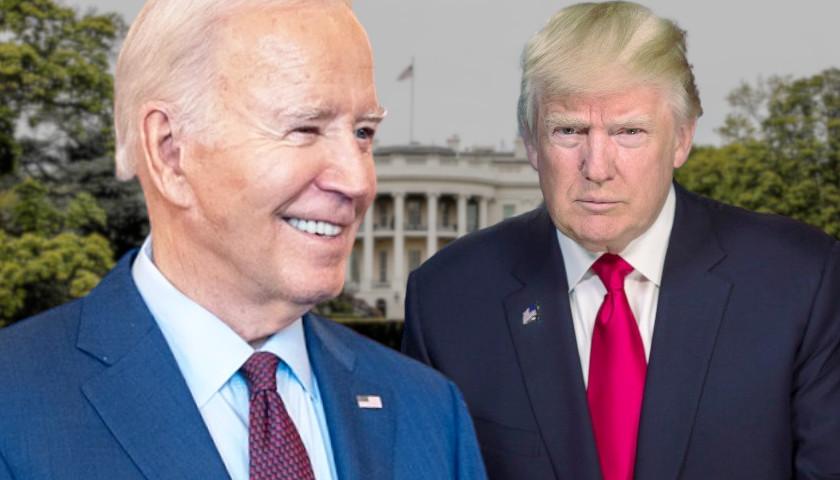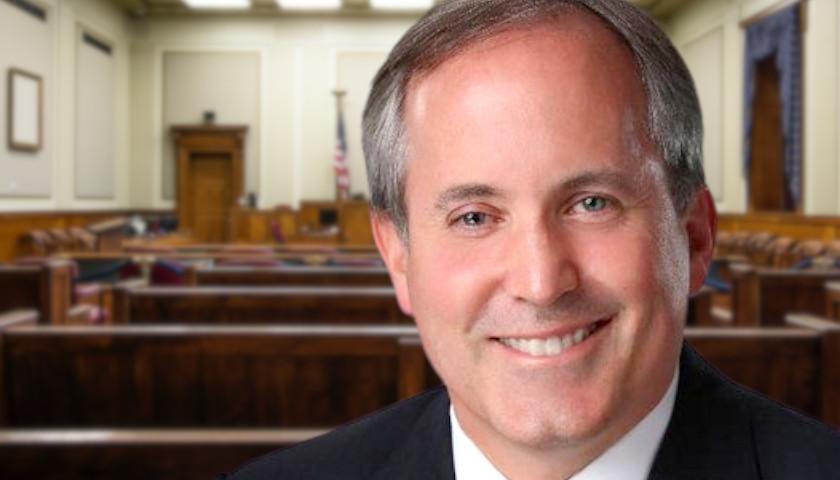by Daniel Oliver
Washington Post columnist Philip Bump had a hissy fit the other day about immigration, writing an article in his column titled “The 2020-was-stolen crew is here to stoke fears of noncitizen voters”—by which he probably meant “The 2020-election-was-stolen crew.”
That must be rule one, or perhaps six, of column writing at the Washington Post: If you’re not sure your column will be successful in making your case, stuff your basic message into the title. It’s also true that often it’s the editors who supply the titles, sometimes to beef up a column that hasn’t quite made the point the writer seemed to have wanted to make.
The spark that set off the column was House Speaker Mike Johnson (R-LA) traveling to Florida for an event with Donald Trump that focused on election security and how to prevent illegal votes from being cast.
“What Trump got,” wrote Bump, “was a public commitment that Congress would address votes cast by noncitizens. Such votes are already barred under federal law . . . .”
Oooo! Case closed? Please. Such votes may be barred under federal law, but that doesn’t mean they aren’t cast—just as President Biden’s forgiving student loans is barred by federal law, but that doesn’t stop him from trying, again and again, to forgive gazillions of dollars of student loans.
Bump said that Speaker Johnson offered four reasons why legislation was necessary, “all incorrect or misleading.” The first, Bump wrote, was that Johnson said there is “no current mechanism to ensure only those registering or voting are actually citizens.” “This isn’t true;” Bump wrote. “[A]s PolitiFact outlined when Trump elevated this concern in 2020, numerous states have processes that validate whether voters are citizens.”
It doesn’t take more than a quick thought to unpack Bump’s claim: if “numerous states have processes that validate whether voters are citizens,” then, also, numerous states do not have such processes. Two additional points are, surely: (1) are the processes that exist followed? And (2) even if they are followed, are they effective?
Second, Bump says Johnson’s claim that 16 million immigrants have entered the country illegally since Biden took office is wildly inflated. Johnson’s figure may be inflated, but his point is valid or understated. A Yale University School of Management study in 2018 concluded that “using mathematical modeling on a range of demographic and immigration operations data, the researchers estimate there are 22.1 million undocumented immigrants in the United States.” And that was back in 2018, before the Biden tsunami of illegals. So while Speaker Johnson’s estimate may be off, there are far more illegals in the country than Bump is willing to acknowledge.
Third, Bump objects to Johnson’s claim that “a growing number of localities are blurring the lines for noncitizens by allowing them to vote in municipal local elections,” saying that only a handful of places allow that. True, maybe, but the fact that illegals are allowed to vote in some places may weaken the willingness of election officials in other jurisdictions to be diligent in keeping illegals from voting in their places.
And fourth, Bump objects to Johnson’s statement that Democrats have expressed a desire to turn noncitizens into voters. Johnson said, “That’s what this open border has been all about.” We should ask Bump why the lefties rage so furiously against checking to be sure that only citizens vote.
Johnson is obviously correct—and Biden has all but admitted as much, saying in 2016, “Fewer than 50 percent of the people in America from [2017] on will be white European stock. That’s not a bad thing. That’s a source of our strength.” That’s Joe Biden’s (racist) Great Replacement theory, and he’s making every effort to see that it occurs. Further evidence that the Biden policy of flooding the country with illegals is deliberate is Department of Homeland Secretary Alejandro Mayorkas’ constant claim that the border is secure. Who are you going to believe? Him or your own eyes?
Why does Bump think the Biden administration has been allowing all those illegals into the country? To read his column? And does it really matter if the number is seven million or seventeen million? How many illegal votes does it take to change the result of an election? In 2020, Biden won Arizona by 10,457 votes, Georgia by 12,670, Wisconsin by 20,682, Nevada by 33,596, Pennsylvania by 81,660, and Michigan by 154,188. Those are not large numbers; they total only 301,843—a fraction of whatever number of illegals even Bump is willing to concede.
There are, of course, studies (what would we do without studies?) “proving” that noncitizen voting is vanishingly rare, but most of them were done before the huge Biden administration surge of illegals.
We should go back to Bump’s claim that numerous states have processes that validate whether voters are citizens. Politifact reports that “when people register to vote, they sign a form attesting under penalty of perjury that they are a citizen and eligible to vote.” That’s it? Yup, that’s it.
The Supreme Court has only ruled directly once, in 2013, on letting states require documentary proof of citizenship for voting in federal elections and they forbade it. The result delighted a gaggle of left-wing groups, including Common Cause, Project Vote, the League of Women Voters, and the American Civil Liberties Union. That tells you a lot. And since then, the Supreme Court has let stand lower court rulings striking down state laws requiring proof of citizenship for voting in federal elections.
It’s still early in this year’s presidential race, but current polls point to a Trump victory in November. It could happen unless the Trump campaign hits a bump in the road: e.g., Biden’s calculated tsunami of illegals vote for him in sufficient numbers to elect him, whether or not they reach his other racist goal of reducing the percentage of white European stock in the U.S. to less than 50 percent.
– – –
Daniel Oliver is Chairman of the Board of the Education and Research Institute and a Director of Pacific Research Institute for Public Policy in San Francisco. In addition to serving as Chairman of the Federal Trade Commission under President Reagan, he was Executive Editor and subsequently Chairman of the Board of William F. Buckley Jr.’s National Review.
Photo “Joe Biden” by Joe Biden.





